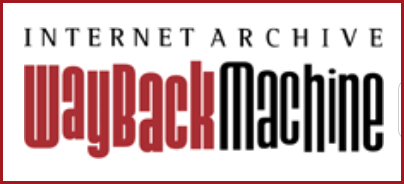 Would you like to see old versions of the website for your student group to find out who ran it and what they did? Or maybe you’d like to examine the content and presentation of whitehouse.gov on September 13, 2001 for a paper. What about browsing JHUNIVERSE — JHU’s first website — and seeing its use statistics from 1996?
Would you like to see old versions of the website for your student group to find out who ran it and what they did? Or maybe you’d like to examine the content and presentation of whitehouse.gov on September 13, 2001 for a paper. What about browsing JHUNIVERSE — JHU’s first website — and seeing its use statistics from 1996?
All of these things are possible because of the work of the nonprofit Internet Archive, which since 1996 has been saving copies of everything on the web that it can. Anyone can access those copies at the Internet Archive Wayback Machine by entering a website URL and browsing the timeline of captures.
Since 2012, the JHU library has partnered with the Internet Archive through its subscription service, Archive-It, which allows us to capture copies of websites that we select for the university’s archives. These websites will be available through the JHU Archive-It page, which is currently under development.
Recently, the JHU Archives piloted a project using Archive-It to capture websites belonging to a small number of JHU-affiliated student groups (with their permission). Student groups often post important information about themselves like their officer lists, announcements of activities and photographs on their websites as well as on social media sites including Facebook, Twitter, Instagram and others. Since the Internet Archive does not crawl most of these sites by default, using a service like Archive-It is one of the best ways for the JHU Archives to ensure that this information is preserved. We hope to continue and greatly expand this project over the next year.
In addition to creating web archives related to a specific group or organization, some libraries have also used Archive-It to preserve content related to topics of research interest that might otherwise disappear. For example, Cornell University Library created an Archive-It collection on fracking in New York and the Internet Archive itself created a collection on the Occupy Movement of 2011/2012. The JHU Archives doesn’t have plans for any thematic collections at this time, but should an event or subject arise that warrants it, we will be prepared to capture the ephemeral web-based content as a form of historical record.
We are interested in hearing from you about websites we should be capturing or ways in which we might use this exciting service. Leave a comment below or send the archives an email.
